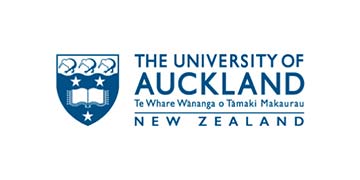University of Auckland: Subversion from inside the closet: gay academics in China
Education and society, Faculty of Education and Social Work, Doctoral, International
Gay male academics in China find ways of living authentically while also appearing to conform in a society often openly hostile to homosexuality, a new study has found.
Cui Le: “Chinese universities are ‘heteronormative’ places, where to be heterosexual is considered the only legitimate and normal way to be.”
The research, by doctoral student Cui Le from the University of Auckland, focuses on gay male academics’ experiences of managing their sexual identity, interacting with queer students, addressing queer issues in the classroom and conducting their own queer-focused research.
Now a student in the Faculty of Education and Social Work, Le interviewed 40 gay academics in China in 2018-2019, with some predictable but other more surprising results.
“Chinese universities are ‘heteronormative’ places, where to be heterosexual is considered the only legitimate and normal way to be, so most gay male academics in this research were closeted in their institution and needed to cautiously manage their sexual identity,” he says.
To conceal this identity and avoid being outed, participants married a heterosexual or lesbian woman or made up a girlfriend, distanced themselves from people on campus, or felt pressured to work harder, says Le.
“However, each coping strategy had its limitations and costs. For these men, acting straight required constant effort to keep up with the performance and distancing themselves from other people, including gay colleagues, reinforced their feeling of isolation.”
He says this pressure, combined with the stress of having to keep up an exemplary professional performance to reinforce their value to the institution and counteract any issues with their identity, became so overwhelming that some participants were forced to leave their jobs.
By highlighting participants’ experiences as both in the closet and beyond this norm, my research challenges the conventional representation of Chinese gay men and Chinese academics as only victims.
Cui Le, doctoral candidate
Faculty of Education and Social Work
And unlike many Western teachers who support queer students by coming out themselves and providing a role model, many participants found ways to support queer students without publicly coming out on campus.
“For example, some interacted with gay students via gay dating apps, helping them accept their gay identity or promoting knowledge about sexual health,” says Le.
He believes this individual support can be considered strategic in the social and political context of China, where any public advocacy and collective activism is risky and can jeopardise reputations and careers.
He also found addressing queer issues in the classroom, including exposing one’s sexual identity, was limited by students’ potential aversion to queer issues, as well as the universities’ own surveillance and censorship of its lecturers and what can and can’t be said in class.
“Participants adopted various strategies to lower the risks,” says Le. “These included mentioning it only in passing, ‘hiding’ queer issues in broader topics, addressing these issues as if they were speaking as a heterosexual, and avoiding revealing a supportive standpoint.”
But he found that remaining in the closet enabled participants to not only pass as heterosexual, but also to interrupt the heterosexual norm.
“By highlighting participants’ experiences as both in the closet and beyond this norm, my research challenges the conventional representation of Chinese gay men and Chinese academics as only victims,” says Le.
“The agency exercised by these participants involves a simultaneous mastery and submission to heterosexual norms and political control in Chinese universities.”

